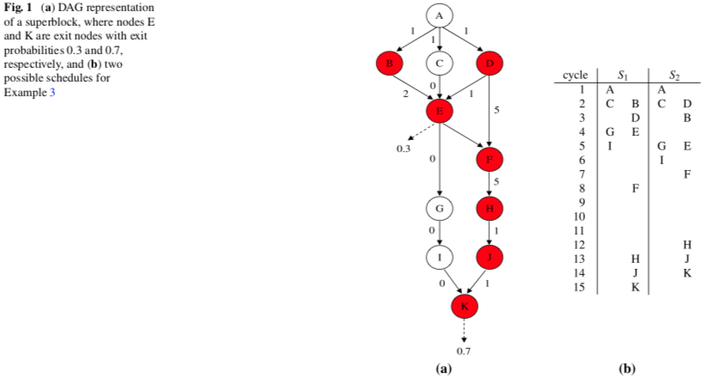A computational study of heuristic and exact techniques for superblock instruction scheduling

Abstract
Compilers perform instruction scheduling to improve the performance of code on modern computer architectures. Superblocks—a straight-line sequence of code with a single entry point and multiple possible exit points—are a commonly used scheduling region within compilers. Superblock scheduling is NP-complete, and is done suboptimally in production compilers using a greedy algorithm coupled with a heuristic. Recently, exact schedulers have also been proposed. In this paper, we perform an extensive computational study of heuristic and exact techniques for scheduling superblocks. Our study extends previous work in using a more realistic architectural model, in not assuming perfect profile information, and in systematically investigating the case where profile information is not available. Our experimental results show that heuristics can be brittle and what looks promising under idealized (but unrealistic) conditions may not be robust in practice. As well, for the case where profile information is not available, some methods clearly dominate. Notably, a much inferior method is deployed in at least one existing compiler.